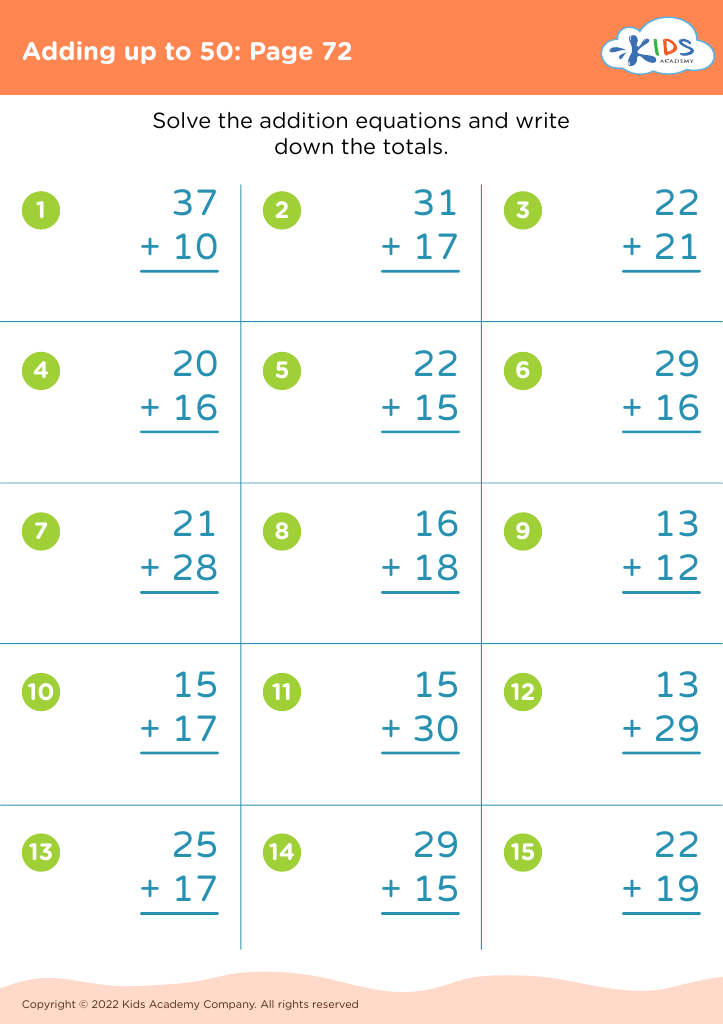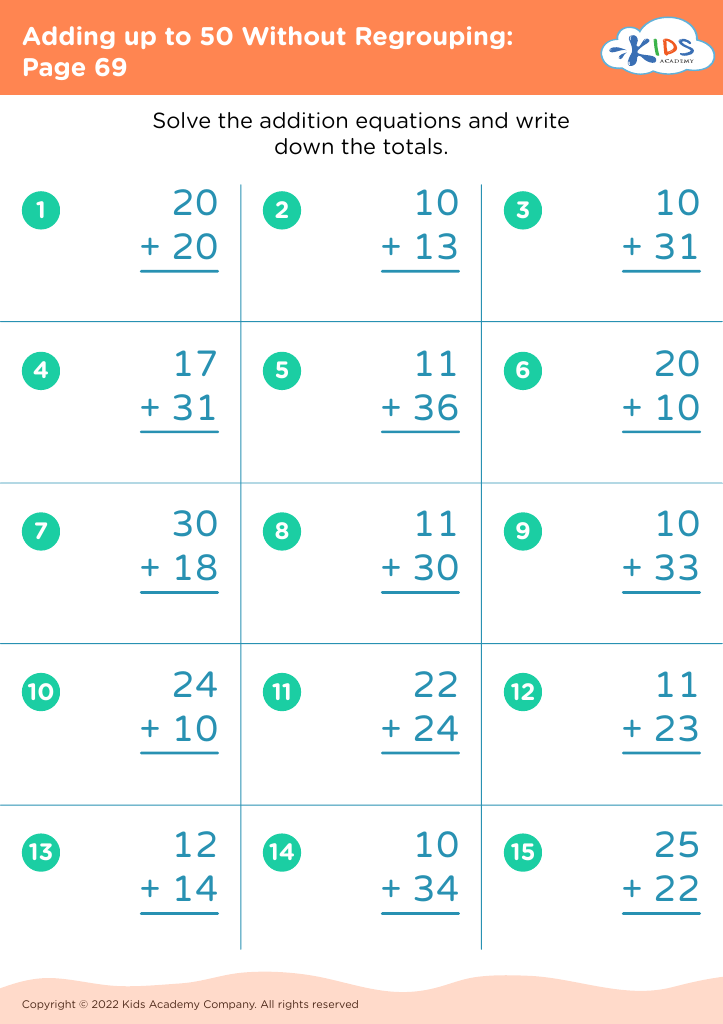Understanding multiplication Adding up to 50 Worksheets for Ages 7-9
5 filtered results
-
From - To
Welcome to our "Understanding Multiplication Adding Up to 50 Worksheets" page, specially designed for children aged 7-9. These engaging worksheets provide a fun and interactive way to introduce the concept of multiplication through the lens of addition. By breaking down multiplication into manageable parts, children will enhance their math skills while understanding how numbers relate to each other. With activities that encourage critical thinking and problem-solving, learners will practice multiplying various combinations to reach sums up to 50. Perfect for both classroom and home learning, these worksheets are a valuable resource for building a strong foundation in mathematics. Start learning today!
Understanding multiplication and addition is crucial for children aged 7-9 as these foundational skills set the stage for more complex mathematical concepts. At this age, students begin to explore relationships between numbers and develop their problem-solving abilities. Mastering multiplication helps them recognize patterns and relationships, making it easier for them to grasp division, fractions, and more advanced arithmetic as they progress in their education.
Adding up to 50 equips students with the confidence to tackle basic accounting for real-life situations, such as budgeting allowance or figuring out scores in games. This age range is pivotal for cognitive development; thus, fostering an understanding of these concepts is essential to cultivate a positive attitude toward math. Moreover, early mastery can prevent learning gaps that may lead to frustration and disengagement in later grades.
Parents and teachers play a vital role by providing supportive learning environments and relatable resources, such as games and practical applications. By emphasizing these foundational skills, they not only reinforce students’ self-esteem but also cultivate essential life skills that contribute to future academic success. Understanding multiplication and adding up to 50 fosters critical thinking, persistence, and a strong mathematical foundation essential for everyday life.


















